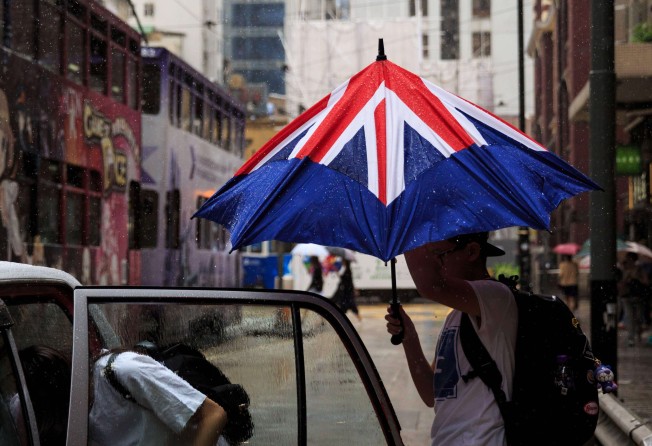Hong Kong stocks slip 1.2pc on renewed Brexit fears
Gold and defensive stocks gain, amid rising risk-off sentiment

Hong Kong stocks fell on Wednesday along with a broad sell-off in regional markets, as renewed Brexit fears pushed the British pound to a new 31-year low.
Only defensive stocks such as electricity generator CLP Holdings and metal producers gained amid rising risk-off sentiment.
The Hang Seng Index slumped as much as 2.2 per cent, but rebounded nearly 200 points in the last hour and half’s trading to close at 20,493.13, down 1.24 per cent or 257.59 points. The Hang Seng China Enterprises Index dropped 1.62 per cent to end at 8,503.14.
Trading turnover picked up 13 per cent from Tuesday to HK$60.6 billion, far lower than the nearly HK$100 billion turnover on June 24, when Brexit supporters celebrated winning the referendum.
Several of the UK’s biggest property funds have halted trading to prevent liquidation, as fears mount over the potential for widespread commercial property selling, while Italy’s third largest lender Banca Monte dei Paschi di Siena was warned by the European Central Bank to cut bad debt by 40 per cent, triggering concern over a systematic risk in European markets.
The pound tumbled, breaking US$1.3 to touch US$1.2798, a fresh 31-year low.
Castor Pang Wai-sun, head of research at Core Pacific-Yamaich in Hong Kong, said institutional investors are ready to sell more as the profound effect of Brexit was still not fully reflected in stock prices.
“Hong Kong has lots of Chinese listings. The European Union is China’s largest trading partner. Brexit will at least drag the EU economy in the next three to five years, and that will dampen China’s exports,” Pang said. “The impact is unavoidable.”
At one stage last week, the Hang Seng Index fully recovered from its loss since the Brexit vote on June 23, but Pang said that did not represent a recovery of confidence, as defensive stocks gained most recent days.
“Turnover was low and it was easy for institutional investors to push up the benchmark short term, as they prepared to offload more holdings later,” Pang said.
He expects high volatility in Hong Kong in the coming days, and suggested the benchmark may even break through 20,000.
Also weighing on the local market was the Nikkei Hong Kong Purchasing Managers’ Index, which dropped to 45.4 in June from May’s 47.2, marking a 16th straight month of contraction.
Among the worst performing blue chips was China Resources Beer, down 4.01 per cent to HK$16.26.
It announced plans to raise a net of HK$9.51 billion via a rights issue at a 30.8 per cent discount, to buy a stake in Snow Breweries from SABMiller.
Insurance, banking, and energy sectors dropped most but gold makers rallied.
CLP, with high dividend yield, gained 1.08 per cent to HK$79.80.
On mainland exchanges, the Shanghai Composite Index shrugged off the turmoil worldwide, ending 0.36 per cent or 10.9 points higher to 3,017.29, a fresh high in two and half months.
The large-cap CSI300 gained 0.29 per cent or 9.42 points to 3,216.8. The Shenzhen Composite Index rose 0.44 per cent to 2,015.17 while the startup board ChiNext Index was flat at 2,241.56, down 0.2 per cent.
Metal, liquor and health care sectors supported the rise. Zhongjin Gold Corp and Western Region Gold Co both jumped 10 per cent to their daily trading limit.
Pang said that while the mainland market is not fully opened yet and largely immune from overseas panic, investors are likely to step up their selling once the Shanghai benchmark nears its recent high level, in April, of around 3,080-3.090.
Asia markets fell collectively. Nikkei225 in Japan closed 1.85 per cent to 15,378.99 while South Korean stocks also fell 1.85 per cent to 1,953.12.